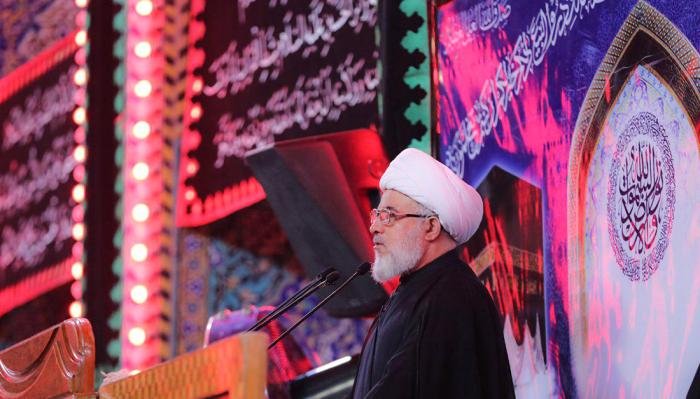“It’s crucial to know what we must learn from the reform revolution of Imam Hussain (Peace Be Upon Him),” said sheikh Abdul-Mehdi ElKerbela’ey, representative of the Shia Muslim Supreme Religious Authority, in the Friday’s sermon he delivered at the Imam Hussain Shrine on Friday, September 28, 2018.
He shed light on the importance of the sense of responsibility, which is divided into types such as feeling responsible for cultural and social awareness.
He then said that although the academic sciences, such as Medicine, Engineering, Chemistry, Physics, Sociology, Pedagogy, and Economics are important, but it is still inadequate to have the insight to cognize the required Hussainian position on the issues of life. And what a faithful Hussainian Muslim – in this day and age – needs to do to be an exemplar of a sophisticated Muslim is that he or she must be armed with the Islamic jurisprudential, cultural, educational, economic, social, and political knowledge.”
He signified the importance of gaining Islamic knowledge from the proper Islamic resources that the Ahlul-bayet (Peace Be Upon Them) specified for Muslims, indicating that some people might think that some people represent the proper Islamic resources; they follow them and take their knowledge from them, but they are not what they are thought of, and those following them will consequently be misguided.
ElKerbela’ey also added, “Prophets and reformers such as Imam Hussain (Peace Be upon Him) fought ignorance and spread knowledge—Muslims must take responsibilities toward their society, try to solve their problems, and never remain passive.”
“Speech was what the prophets and reformers were armed with to reform people and guide them righteously. The speech of Imam Hussain (Peace Be Upon Him) has remained for eternity, because it represented the method of reforming people individually and as a whole,” ElKerbela’ey also added.
He warned of using ill-mannered speech with people, because that will lead to sedition, hatred, and conflict in society, confirming that Islam is not a set of religious observances, worshipping or mottos to reiterate, but it is a complete constitution of life—that’s what the revolution of Imam Hussain (Peace Be Upon Him) teaches.
ElKerbela’ey concluded, saying that if people remain passive and don’t try to partake in reforming their society, especially when the situation becomes critical, they never represent the principles of the Hussainian revolution even if they worship and practice religious observances more.

